This post may contain affiliate links. Please read our disclosure policy.
This Italian brioche bread is rich, buttery, slightly sweet, tender, and absolutely delicious! Surprisingly easy to make.
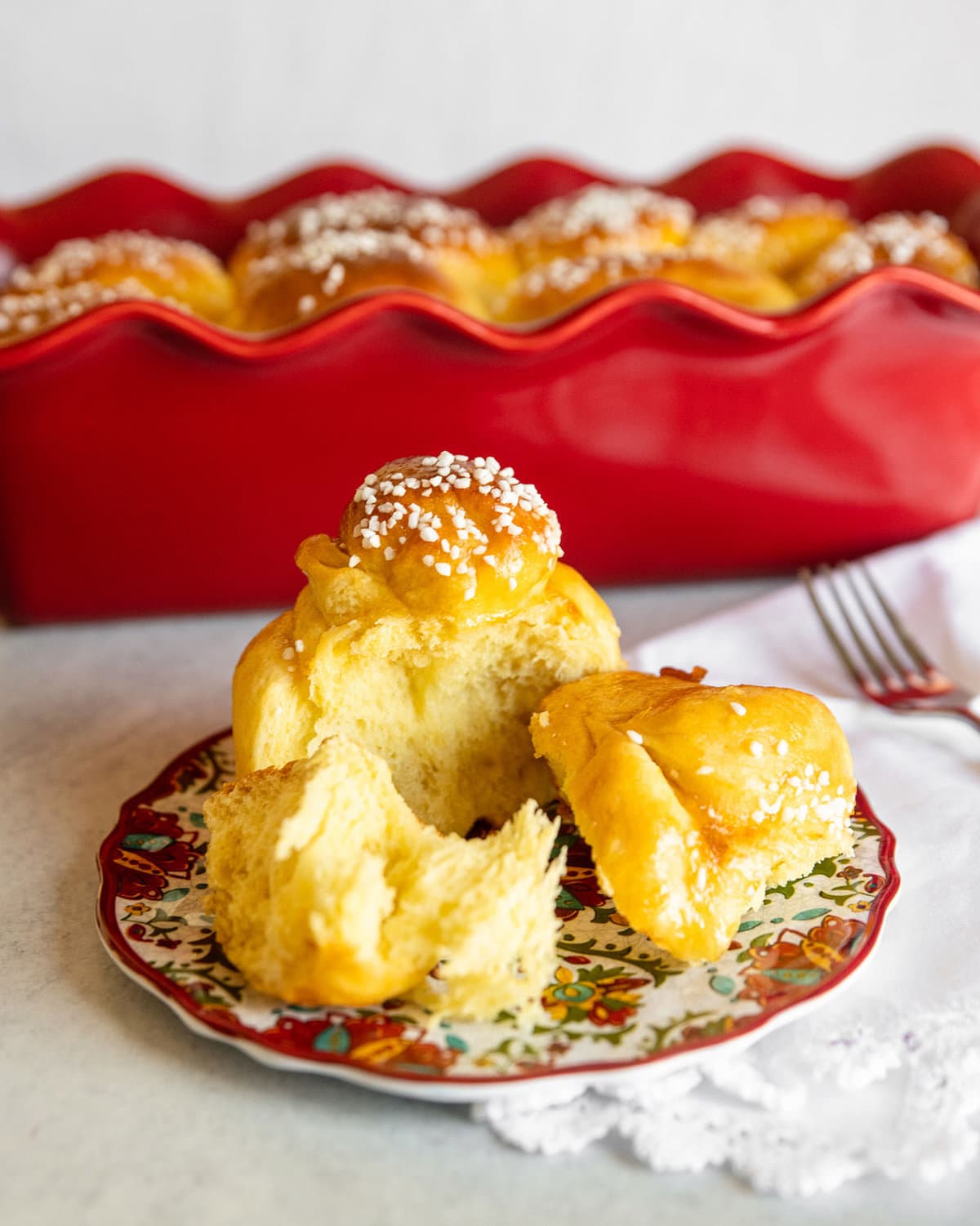
You may also like these sweet bread recipes Sweet Braided Easter Bread, Focaccia with Raspberries and Balsamic Glaze, Bread Pudding, and St. Lucia Sweet Saffron Rolls (almond filling).
Include bread as a brunch spread with Italian Frittata Recipe with Peas, Onions, and Ricotta, Potato and Egg Breakfast Casserole, and Berry and Goat Cheese Salad with Honey Citrus Dressing.
Table of Contents
Why I Love This Recipe
I have countless memories eating a variety of delicious brioche breads in Italy. It is my pleasure to share this recipe with you!
This bread is rich, buttery, slightly sweet, tender, and absolutely scrumptious! The added lemon and orange zest are one way that sets this recipe apart from your traditional French brioche recipe. Enjoy the extra “zest” of flavor.
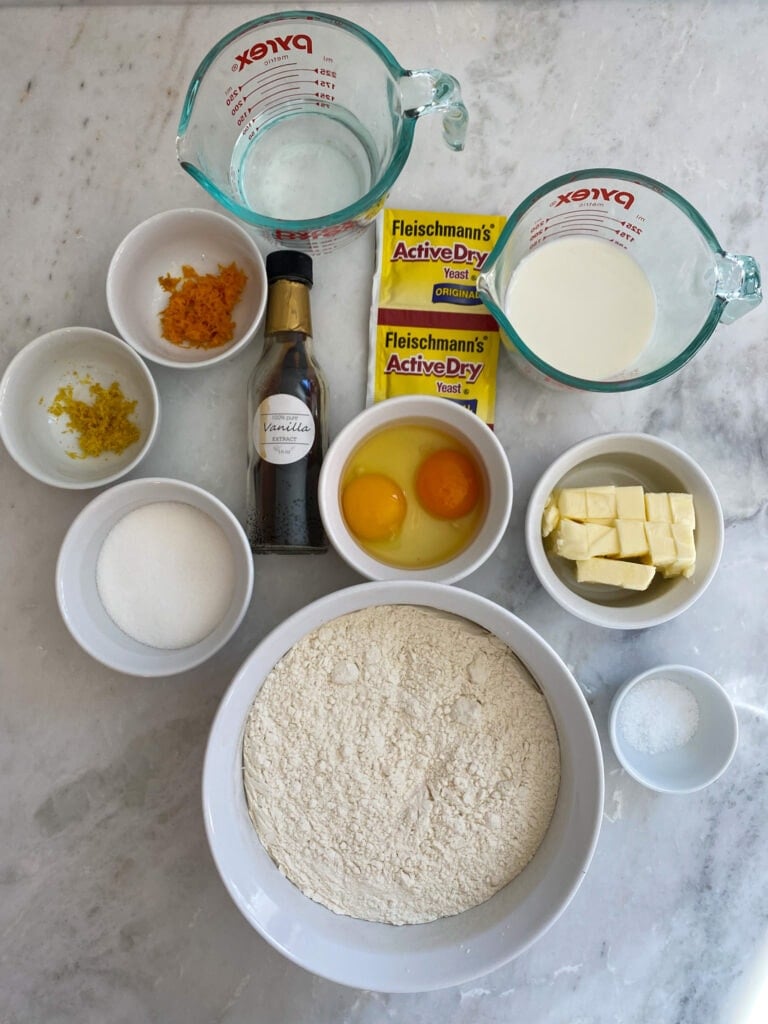
Ingredients
- Warm water
- Warm milk
- Eggs
- Active dry yeast
- Salt
- Sugar
- Bread flour
- Butter
- Lemon and Orange Zest
- Vanilla Extract
- Optional: jam and pearl sugar for glaze
How To Make Brioche Bread
1-2. Dissolve the yeast in warm water. Stir gently until foamy.
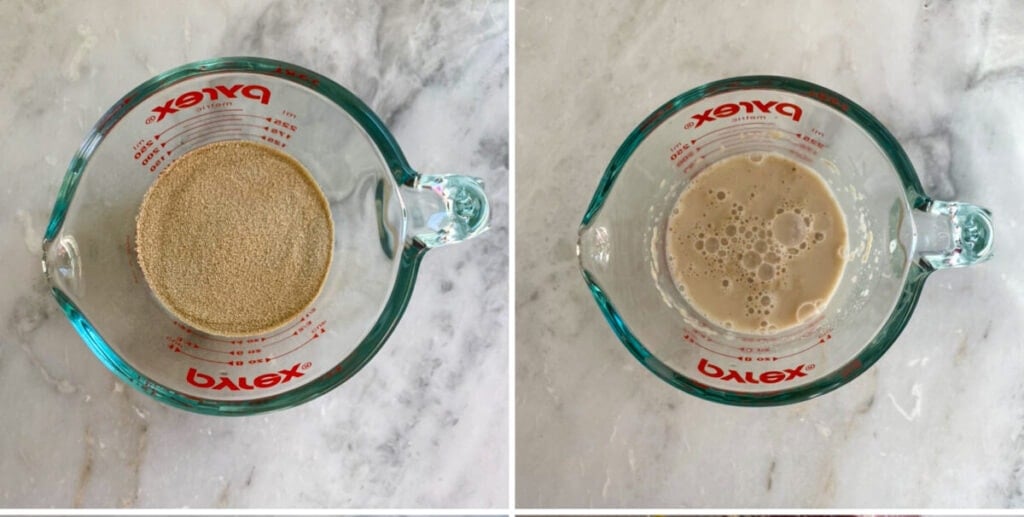
3-6. Add the flour to the bowl of a stand mixer. Mix the wet ingredients and zest in a separate bowl. Mix the wet and dry ingredients with a dough hook.
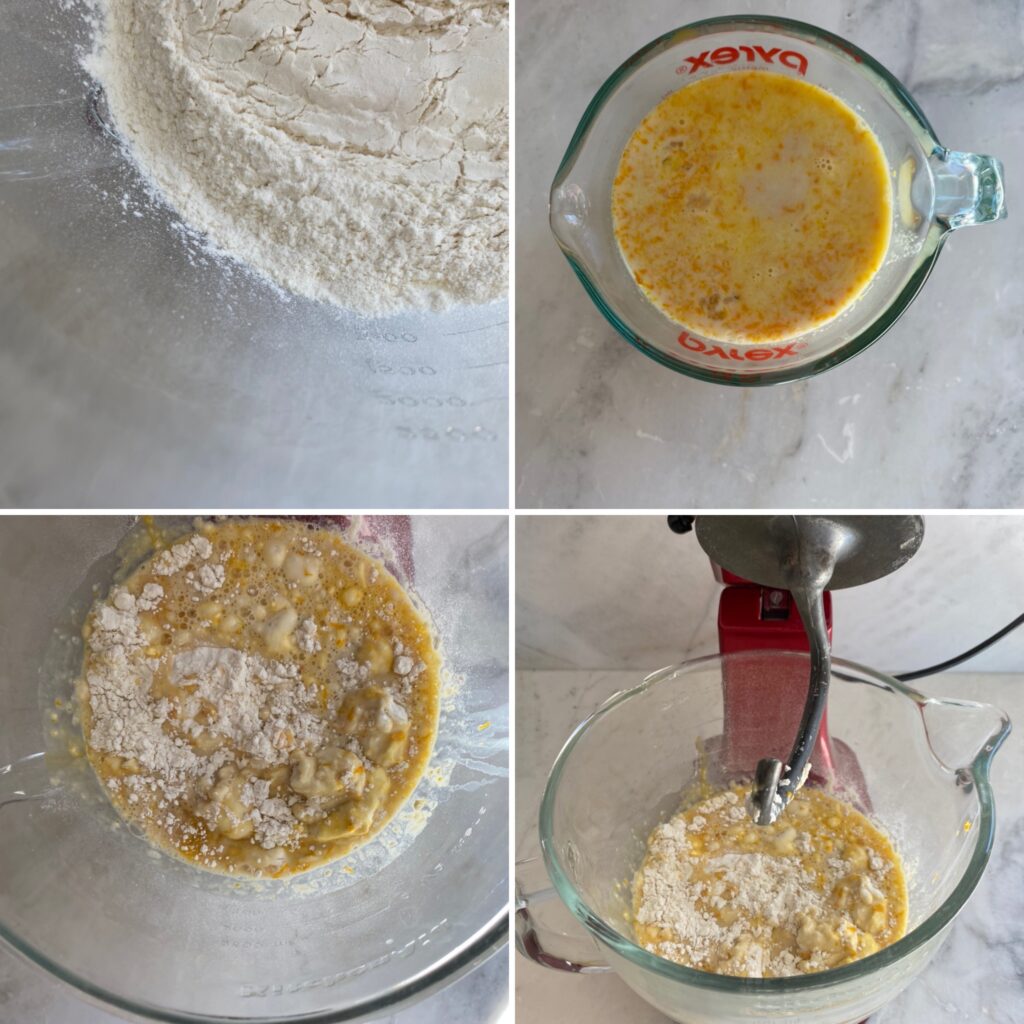
7-10. The dough will be very sticky and shaggy. Add the salt. Mix to incorporate. Add the butter a little at a time. Mix with each addition.
Mix on low speed for about 10 minutes until butter is completely incorporated.
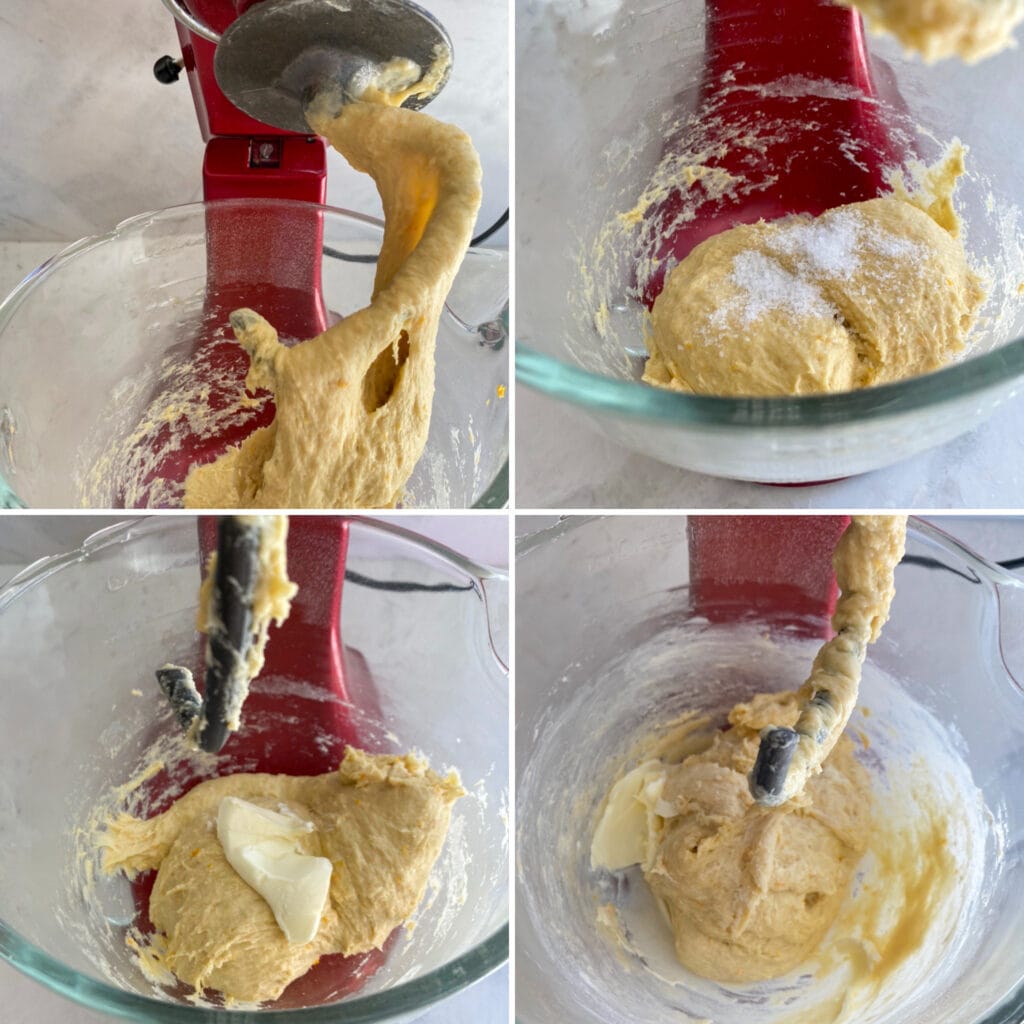
11-14. Scrape down the sides of the bowl. The dough is ready when it’s smooth and stretchy and can be gathered together and picked up in one piece. The dough will remain sticky.
Place the dough in a large oiled bowl and cover it with plastic wrap. Allow the dough to rise for 60 minutes in a warm place.
At this point, the dough may also be frozen or stored in an airtight container in the fridge for up to 1 week.
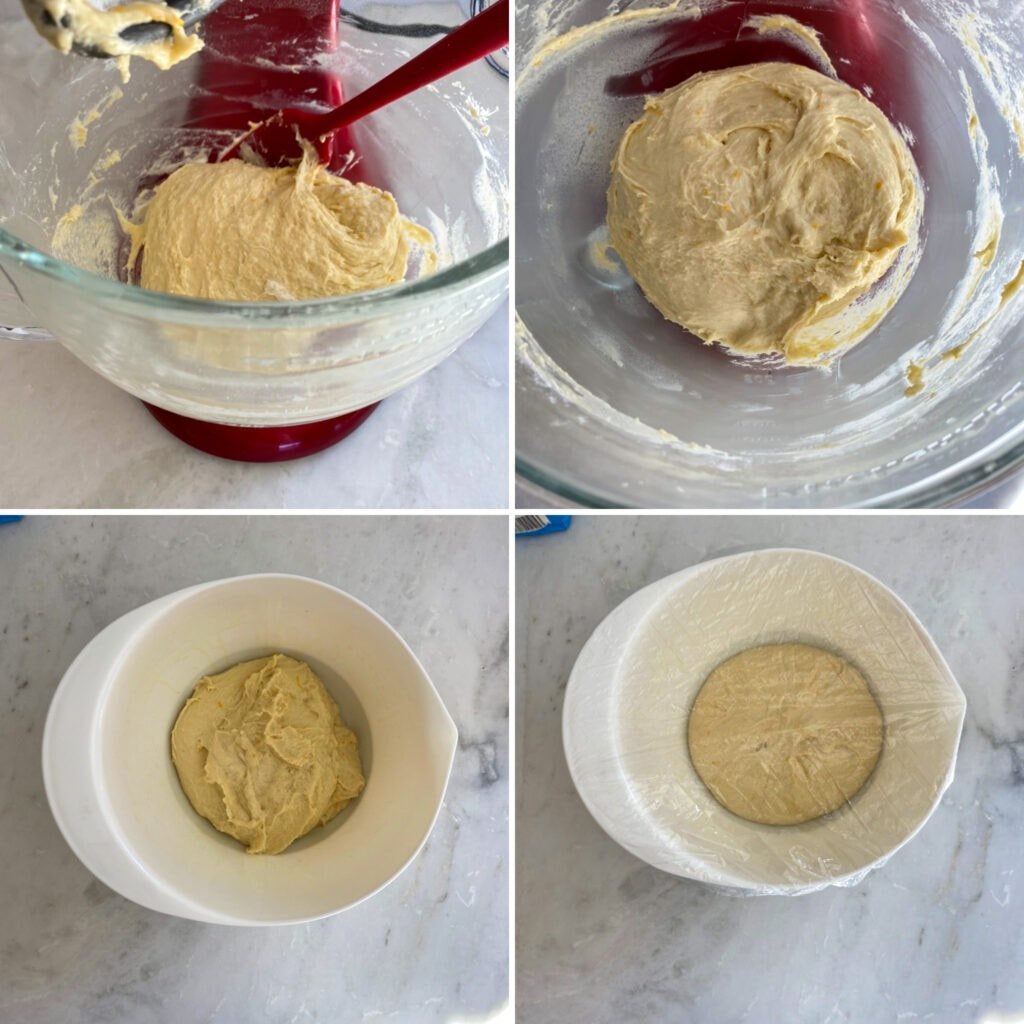
Shaping Options
After the first rise you can shape the dough in a variety of ways- braid it, shape it into buns, or make it into a loaf. Then, let rise again and bake!
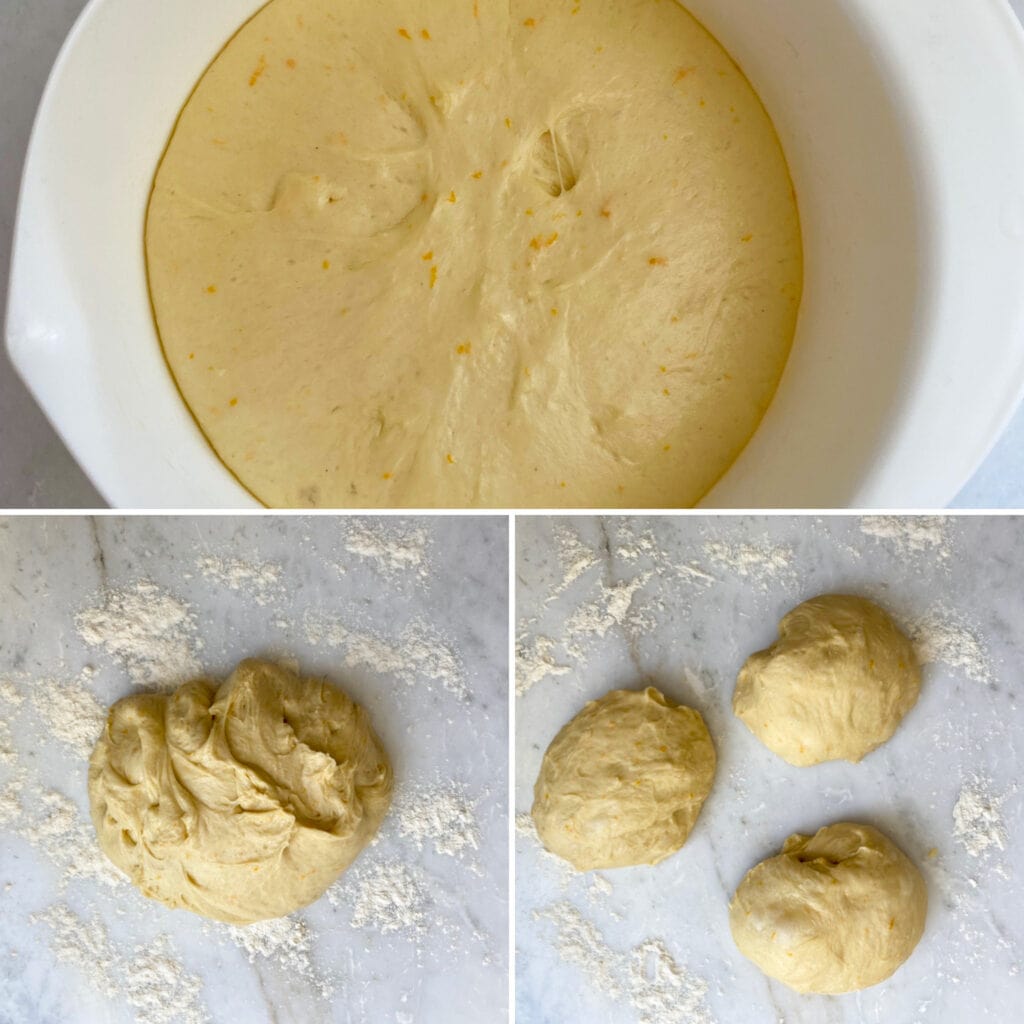
Brioche, a soft loaf with a high egg and butter content, is considered a pastry. Italian bread often contains a bit of milk or olive oil, and sometimes a bit of sugar.
French bread tends to be longer and narrower. Italian bread loaves tend to be shorter and plumper.
Brioche dough that’s too wet will be slack and hard to handle, and it won’t spring up as pertly during baking. Dough that’s too dry will give you brioche that’s heavy and dry, rather than light and fluffy.
The dry, crumbly texture of brioche has less to do with recipe than with mixing and handling.
Since brioche is especially high in fat (butter), which in most formulas is 50 to 60 percent of the flour’s weight, what happens between the fat and the gluten determines the volume and texture of the product.
For this recipe we use bread flour. Here is why:
Let’s discuss Bread Flour! When making bread it is very important to use bread flour instead of all-purpose flour. Why can’t you use regular all-purpose flour, you might ask.
Bread flour has an increased amount of protein or more gluten which results in a lighter, fluffier dough which produces a less dense finished product.
All-purpose flour can be used, but bread flour is always better if your goal is a “fluffier” bread. The biggest difference is that bread flour has a higher protein content compared to regular flour.
High protein in flour produces more stability and form- ultimately increasing the amount of rise. All-purpose flour results in a shorter bread and doesn’t rise as much.
The higher protein content in bread flour means that the flour has more gluten in it.
Gluten makes the dough supple and flexible (just compare gluten free bread to gluten bread to see this difference).
Put simply, bread flour was specifically made to be used with yeast in bread to produce a fluffier end result.
Recommended Equipment
What is the best baking pan for this brioche bread? A few options include:
- springform pan
- round springform pan
- cast iron skillet
- cast iron skillet
- flat baking sheet
Link to this Beautiful Emile Henry Baking Dish.

Pro Tips
- Use room temperature eggs and butter (soft not melted butter), leave them out an hour or so before making the dough, This makes the dough easier to work with as they ingredients will bind together better.
- Check the date on your YEAST. If your yeast is old and not active, you will do a lot of work for nothing 🙂
- Mixing the dough before the butter, then add the soft butter in chunks a little at a time
- Don’t be afraid of buttery slimy sticky dough, before all the butter is incorporated all the way it will seem very sticky- KEEP MIXING!
- Gluten develops well in water, but fat hinders gluten development. With an enriched dough like brioche, all the fat from the yolks and butter works against its gluten development. However, it also keeps the dough super soft and rich in flavor giving it an almost cake-like texture!
- That is why brioche dough needs to be kneaded for much longer for good gluten development. Since the dough will be slack and sticky, a stand mixer is highly recommended to knead the dough until smooth and velvety.

Recipe Variations
Shape: Braid (see photos for how to braid) this brioche dough and lay it on a baking sheet for the second rise and baking.
Shape the dough into buns (as seen in these photos) before placing them in the baking dish.
Flavorings: Add ground spices and extracts to the dough – cinnamon, cardamom, nutmeg, even saffron, and/or almond extract.
Or, try this bread: St. Lucia Sweet Saffron Rolls (almond filling)

Storage Instructions
To store– Make sure the baked bread is container. It can be kept at room temperature for a couple of days. In the refrigerator for up to 1 week.
To freeze – To keep the bread longer, freeze the baked bread in a freezer-safe bag or airtight container for up to 2 months.
You can also use the leftovers to make stuffing for Thanksgiving.
What To Serve With This Recipe
If you want to make your presentation for this bread a little “extra” try serving it with a delicious Italian Pastry Cream, Italian Chocolate Pastry Cream (Crema Pasticcera), or Best Italian Pistachio Cream.
You can also pair it with this homemade pistachio butter as a spread.
If you have any leftovers of this bread and want to turn into something more, make this French Toast Bake and swap the challah for slices of brioche.
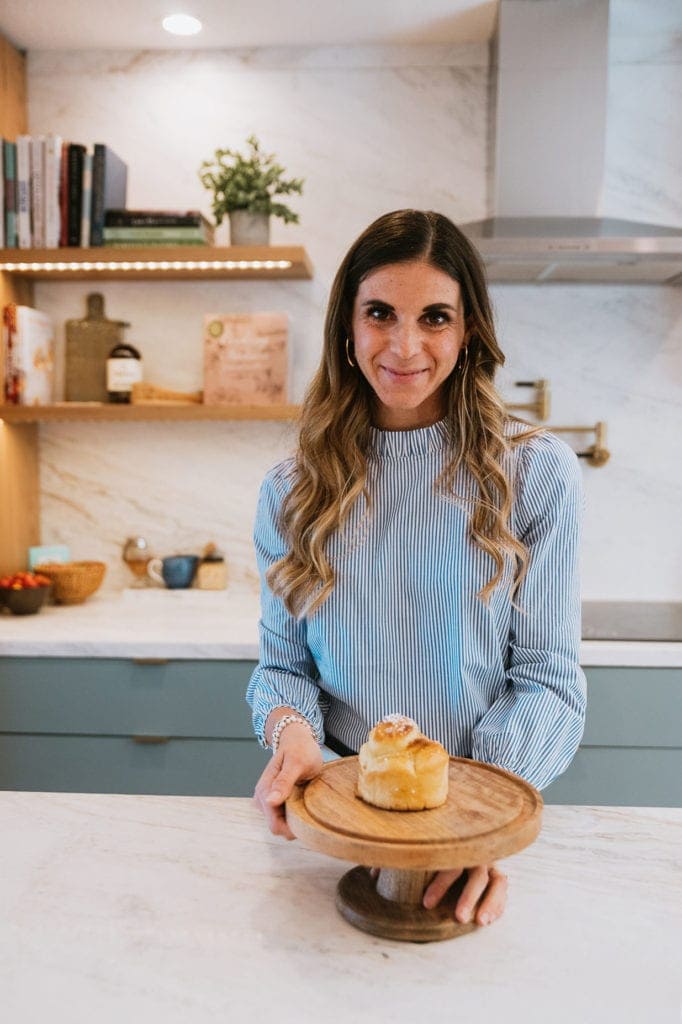
From My Cucina (kitchen) to Your Table… Mangia! (Eat!)
Made with Amore, Elena
More Sweet Recipes for YOU
Italian Crumble Cake Pastry Cream Filling
Rustic Blueberry Galette- Best Recipe Flaky Crust
Best Easy French Apple Tart Recipe
💙 MADE THIS RECIPE AND LOVED IT? 💙 Please leave a ⭐️STAR rating and COMMENT below- I love connecting with you! Tag me with your creations on Instagram and find me on Pinterest.
Brioche Recipe

Ingredients
- ½ cup warm water at 110 – 115 degrees F, 120 grams
- ½ cup warm milk, 120 grams
- 4 ½ teaspoons active dry yeast, 2 packages
- 3 ¼ cups bread flour, 400 grams
- ⅓ cup sugar , plus 1 tablespoon, 82 grams
- 1 ¼ teaspoon salt
- 1 teaspoon pure vanilla extract
- 1 teaspoon lemon zest
- 1 teaspoon orange zest
- 1 whole egg + 1 egg yolk
- ½ cup unsalted butter, 8 tablespoons, at room temperature, cut into 1 tablespoon pieces
- ½ cup apricot jam for glaze, optional
- pearl sugar for decoration, optional
Instructions
- Stir the warm water and yeast together and allow the yeast mixture to sit for 2 minutes.
- In a stand mixer fitted with a dough hook attachment add the flour. In a separate bowl, combine all of the ingredients except for the salt and butter. Mix wet ingredients well and add to the flour.
- Mix the ingredients on low speed for 3 to 4 minutes, until the dough has come together.
- Stop the mixer and scrape down the sides as needed, pushing the dry ingredients into wet patches. Once the dough has come together, beat on low speed for 3-4 additional minutes. The dough will be stretchy and sticky.
- Add the salt. On low speed, add the butter a little at a time, mixing after each addition until it disappears into the dough.
- Then, continue mixing on low speed for about 10 minutes, stopping the mixer occasionally to scrape down the bottom and sides of the bowl. It is important for all of the butter to be mixed thoroughly into the dough. If necessary, stop the mixer to break up the dough with your hands to help mix in the butter.
- Once the butter is completely incorporated, turn the mixer to medium speed and beat for another 8-10 minutes, or until the dough becomes sticky, soft, and somewhat shiny. Continue beating until the dough turns smooth and silky.
- Then, turn the mixer up to medium-high and beat for 1-2 minutes. You should hear the dough making slapping sounds against the sides of the mixer bowl. Test the dough by pulling it and stretching it thin.
- You want the dough to stretch, but also give a bit. If it feels too loose, easily breaks off into pieces, or looks shaggy, continue to mix on medium speed for 2-3 additional minutes. It’s ready when it’s smooth and stretchy and can be gathered together and picked up in one piece. The dough will remain sticky.
- Place the dough in a large oiled bowl and cover it with plastic wrap. Allow the dough to rise for 60 minutes in a warm place. Optional: place dough in fridge overnight to allow the dough to proof and develop flavor. At this point, the dough may also be frozen or stored in an airtight container in the fridge for up to 1 week.
- To make two brioche loaves, grease two standard loaf pans liberally with butter. Divide the dough into two halves, and shape the dough into loaf shapes by stretching the edges under creating a rounded surface. Place the shaped dough into the loaf pans.
- Cover the loaves lightly with plastic wrap and place them in a warm spot (75-85 degrees Fahrenheit is ideal) for 45-60 minutes, or until the loafs have nearly doubled in size.
- They should have risen to the edge of the pan and have rounded tops. The dough should feel soft, pillowy, and delicate.
- Position a rack in the center of the oven and preheat to 350 degrees Fahrenheit.
- In a small bowl, microwave the apricot jam for 15 seconds. With a pastry brush brush the top of the bread with a thin layer of the jam. Add a sprinkle of the pearl sugar.
- Bake for 35 – 45 minutes, until the tops and sides of the loaves are completely golden brown and the internal temperature reads 210 degrees Fahrenheit.
- Cool the loaves in the pans for 30 minutes, then turn out onto a cooling rack and let them finish cooling completely. The bread may be stored for up to three days wrapped tightly in plastic, and makes great French toast when stale.
Notes
- Use room temperature eggs and butter (soft not melted butter), leave them out an hour or so before making the dough, This makes the dough easier to work with as they ingredients will bind together better.
- Check the date on your YEAST. If your yeast is old and not active, you will do a lot of work for nothing 🙂
- Mixing the dough before the butter, then add the soft butter in chunks a little at a time
- Don’t be afraid of buttery slimy sticky dough, before all the butter is incorporated all the way it will seem very sticky- KEEP MIXING!
- Gluten develops well in water, but fat hinders gluten development. With an enriched dough like brioche, all the fat from the yolks and butter works against its gluten development. However, it also keeps the dough super soft and rich in flavor giving it an almost cake-like texture!
Nutrition
Nutrition information is automatically calculated, so should only be used as an approximation.


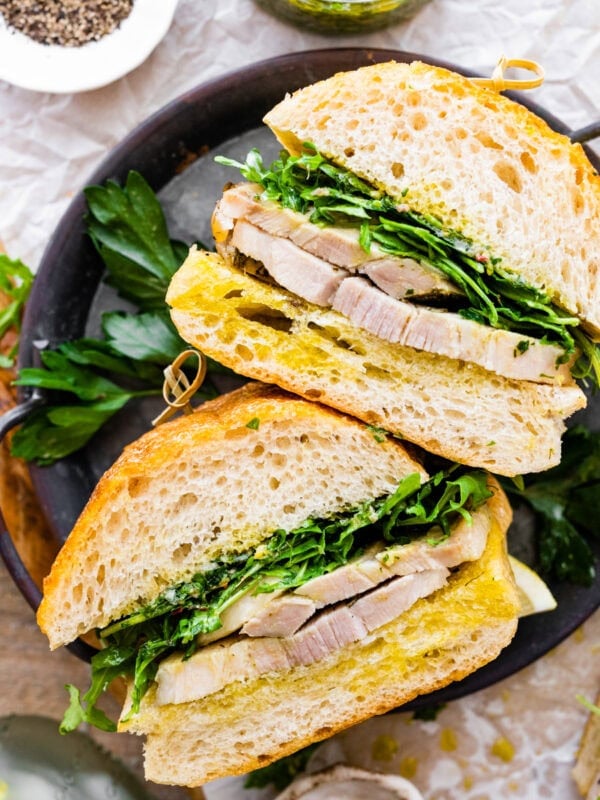
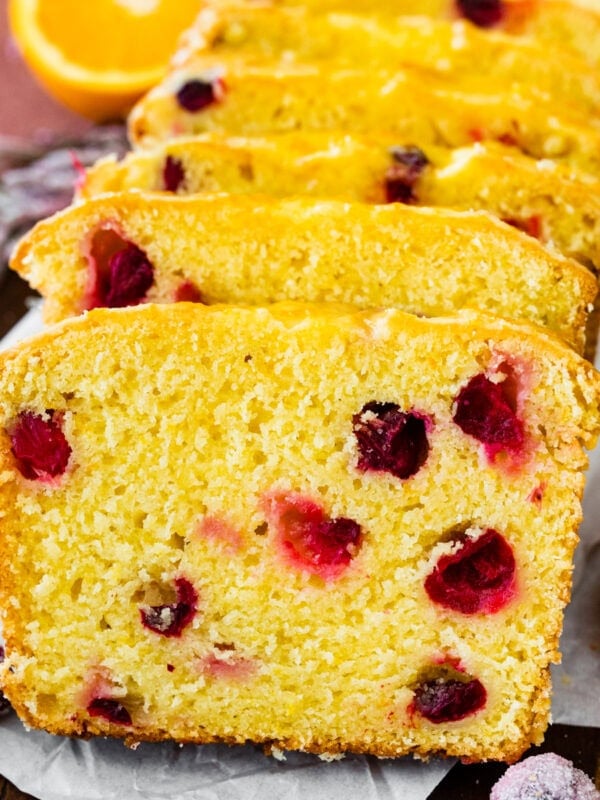




Please beware: the weight measurements for the double and triple recipes are not correct–they are the weights for the single recipe.
Sorry about that.
Great brioche recipe. Very light, fluffy and flavorful. A sweet dough rather than the heavier French or American style. The family is addicted to this one. Thanks for the great instructions!
-Andre
Yes! You nailed it. That is exactly how this Italian brioche is supposed to be. Thrilled you loved it. Enjoy for years to come.
Truly, the softest and best brioche dough!